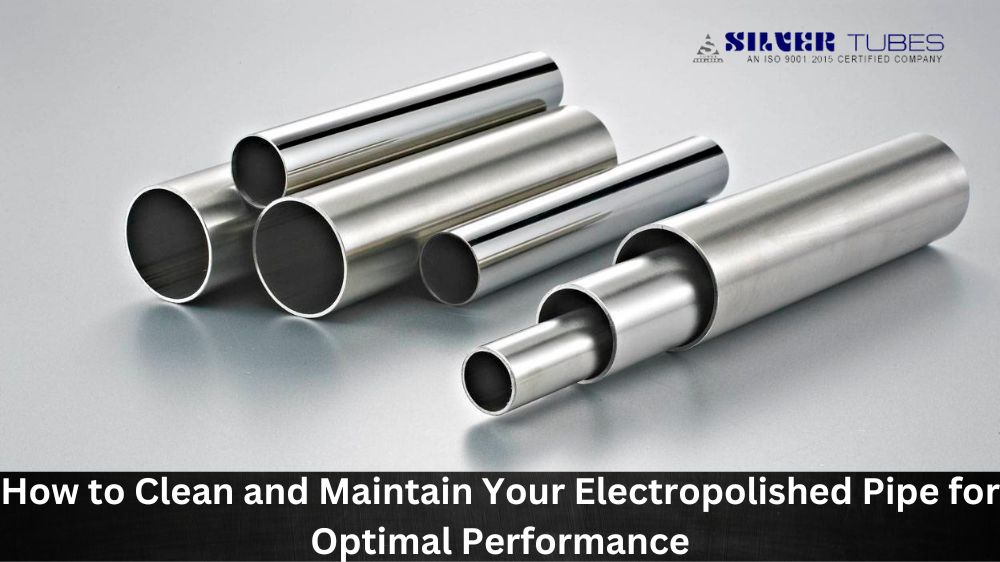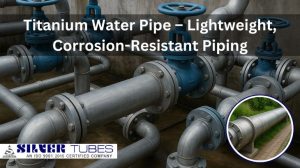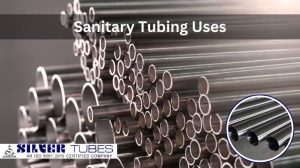Electropolished pipes are common in many industries, such as pharmaceuticals, biotechnology, food and beverage, and semiconductors. These pipes are made from stainless steel and undergo a special finishing process that makes them smooth, clean, and corrosion-resistant. As a result, they are ideal for transporting sensitive fluids such as purified water, acids, and solvents, among others. However, electropolished pipes require regular cleaning and maintenance to maintain their unique properties. In this article, we will offer tips and guidelines on cleaning and maintaining your electropolished pipes for optimal performance.
What is Electropolished Pipe?
The Electropolished Pipe is a kind of material with superior corrosion resistance. Electropolishing involves using an electrical current to remove metal from the surface, leaving a smooth and uniform finish. This is done to extend its service life and improve safety. Electropolished pipes can be used in food processing, chemical production, pharmaceuticals, steel mills, and refineries. They have excellent mechanical properties, including increased hardness, wear resistance, low friction coefficient, shock resistance, and high impact strength.
Understand the Properties of Electropolished Pipes
Before you can start cleaning your electropolished pipes, it is essential to understand their properties and potential contaminants. Some common contaminants include mineral deposits, oils, organic matter, and microorganisms. Since electropolished pipes are susceptible to corrosion, avoiding harsh chemicals, abrasive materials, and high pressures during cleaning is crucial. Additionally, ensure that all cleaning procedures adhere to local and national regulations regarding waste disposal, water usage, and cleaning agents.
Schedule Regular Inspections and Cleaning
Regular inspections and cleaning of electropolished pipes help to prevent corrosion, clogging, and contamination. Depending on your industry and environmental factors, you may need to clean your pipes weekly, monthly, or quarterly. Inspectors look for signs of leakage, corrosion, damage, or discoloration. Also, monitor the pressure, flow rate, and temperature of the fluids passing through the pipes. Use suitable cleaning methods such as backflushing, mechanical scrubbing, or chemical cleaning for clogs.
Use Recommended Cleaning Agents and Tools
When cleaning electropolished pipes, it is essential to use recommended cleaning agents and tools. Avoid harsh acids, bleach, or abrasive materials that can damage the smooth electropolished surface. Instead, use mild detergents, sanitizers, and/or specialized cleaning agents such as citric acid or hydrogen peroxide, as the manufacturer recommends. Use soft brushes, sponges, or cloth that will not scratch the surface of tools. High-pressure water or steam cleaning methods should only be used in extreme cases.
Practice Proper Storage, Handling, and Transport
Proper storage, handling, and transport of electropolished pipes also play a critical role in maintaining their optimal performance. Always store pipes in a clean, dry, and well-ventilated area free from moisture or sunlight exposure. Avoid dragging or dropping the pipes, which can cause dents, scratches, or other damage. Use protective packaging to prevent vibration, shock, or collision during transport. Additionally, consider using specialized equipment such as dollies, pallet jacks, or hoists to safely move large and heavy pipes.
Partner with Reliable Suppliers and Contractors
Working with reliable suppliers and contractors effectively ensures that your electropolished pipes receive the proper cleaning and maintenance procedures. Seek suppliers who specialize in the manufacture and maintenance of electropolished pipes, and have proper certifications and related experience. Similarly, contract competent service providers who inspect, clean, and repair your electropolished pipes promptly and cost-effectively. Also, maintain a good record of your pipes’ maintenance history, including suppliers’ and contractors’ dates, methods, and contact information.
Conclusion
Proper cleaning and maintenance of electropolished pipes are crucial in ensuring their optimal performance. Understanding the properties of electropolished pipes, scheduling regular inspections and cleaning, using recommended cleaning agents and tools, practicing proper storage, handling, and transport, and partnering with reliable suppliers and contractors are effective strategies for maintaining your pipes. By following these tips and guidelines, you can extend the lifespan of your pipes, prevent corrosion, clogs, and contamination, and optimize your production efficiency and quality.






